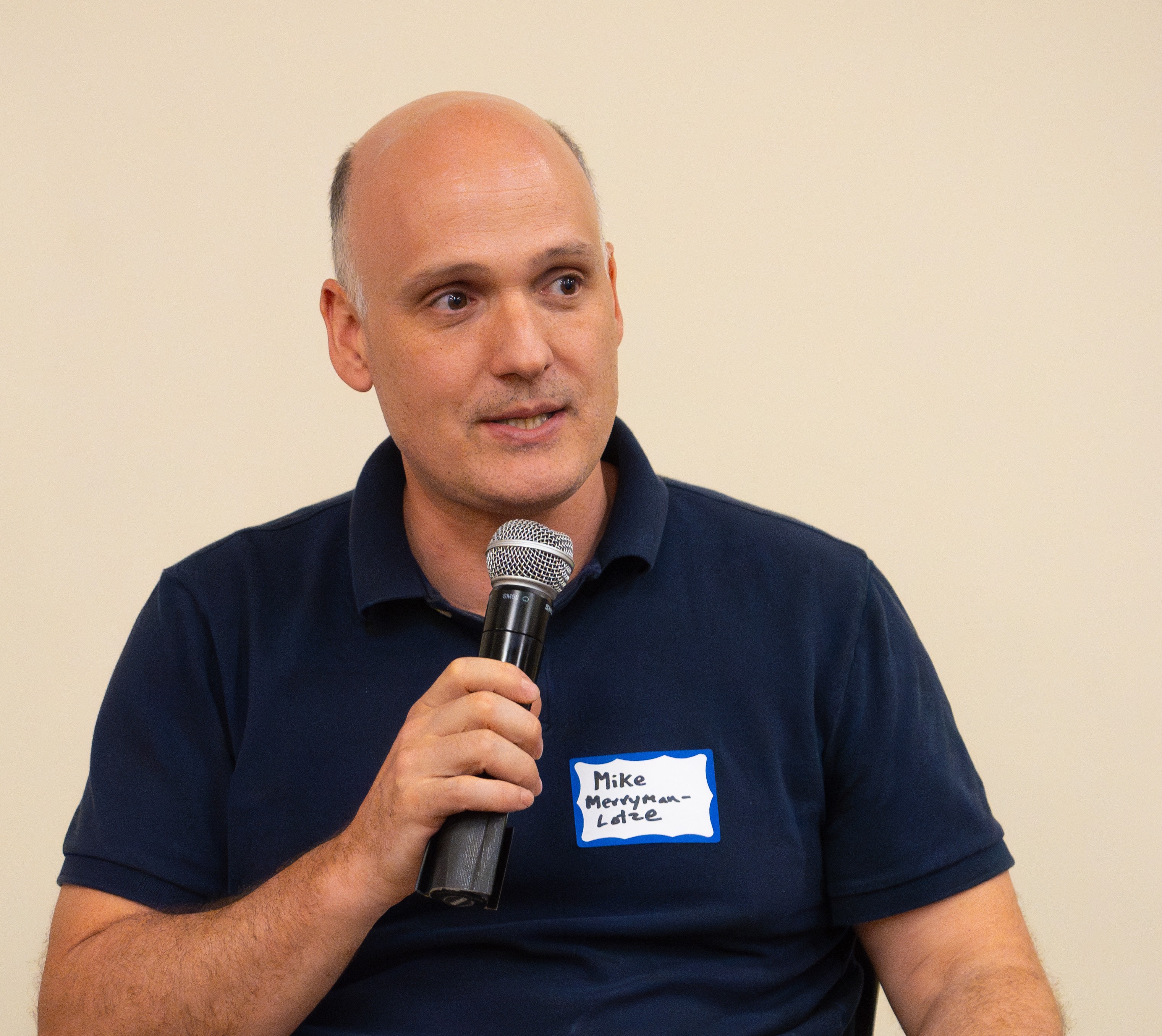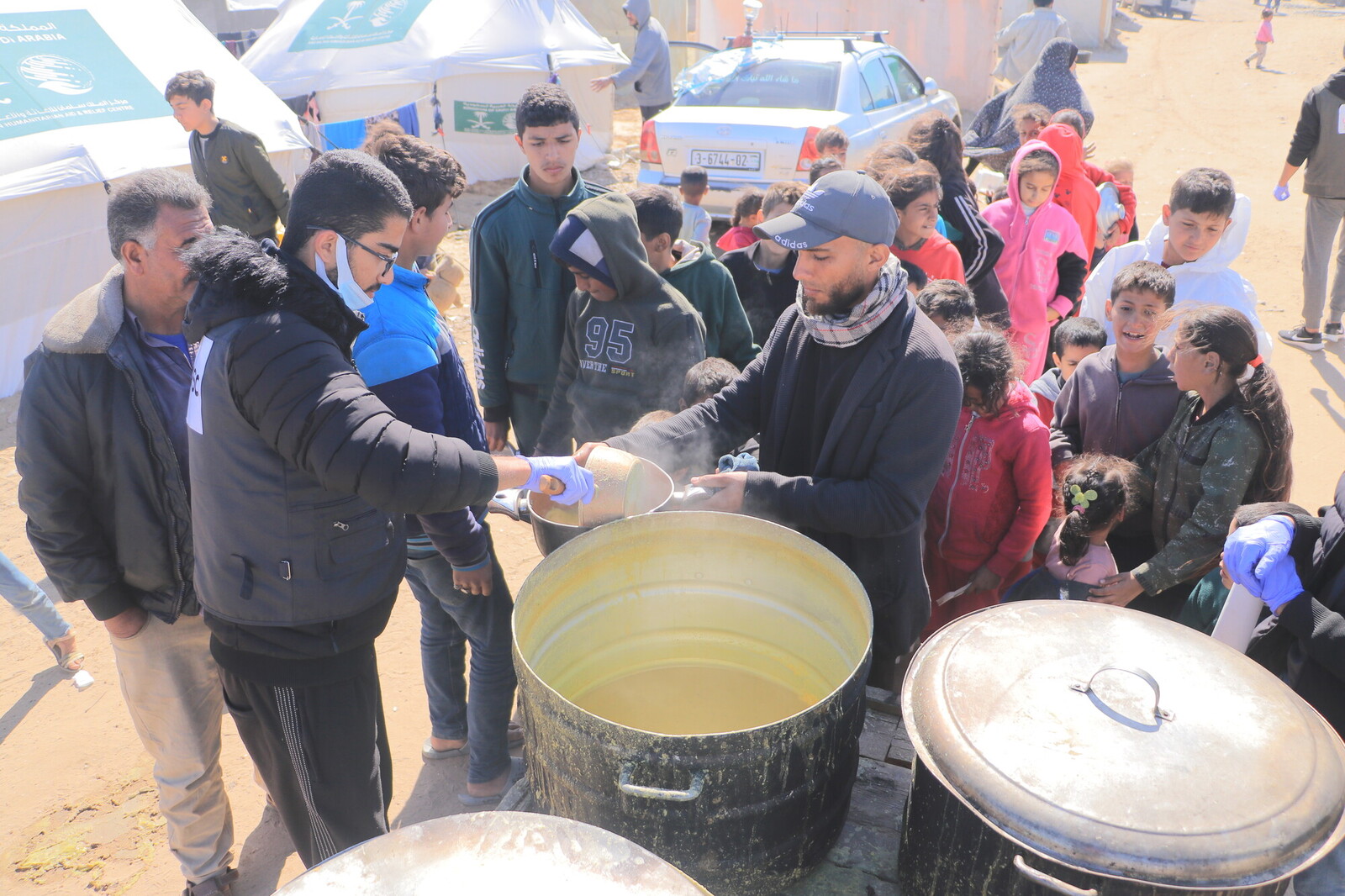
Photo: Nathaniel Doubleday/AFSC
Q: Can you talk about the humanitarian crisis in Gaza that has escalated over the past two years?
For over 17 years, Palestinians in Gaza have lived under a brutal blockade imposed by Israel, restricting their rights, movement, and access to basic needs. Since October 2023, Israel has killed tens of thousands of people, displaced nearly the entire population, and destroyed most infrastructure.
Over the past two years, AFSC has provided humanitarian aid to hundreds of thousands of Palestinians, thanks to the dedication of our staff in Gaza and the generosity of our supporters. But Israel’s restrictions on aid have meant that our team has often had to work with what little can be sourced locally.
The aid provided by the Gaza Humanitarian Foundation, which was created by Israel in February 2025 and supported by the U.S., is inadequate to meet the massive need. It has been used as a fig leaf to continue restricting aid, and that has resulted in famine.
Since last year, AFSC and other organizations have been warning that we would reach a point of no return—a point where people were starving to death. We hoped the international community would respond with pressure on Israel for a permanent ceasefire and access for humanitarian organizations. Instead, we’ve witnessed Israel intensify its blockade. As a result, more people are dying.
Q: AFSC has worked in Palestine and Israel since 1948. How does that experience help us understand what we’re seeing today?
Palestinians have long described the inequality they face as equivalent to apartheid. That reality is now recognized by Amnesty International, Human Rights Watch, and Israeli human rights organizations like B'Tselem. What we’re seeing today is the culmination of decades of violence and oppression.
AFSC’s work in Palestine and Israel has always been grounded in the Quaker testimonies of peace and equality. If we want to end the cycle of conflict, the world must recognize the situation of apartheid at its core. Politicians focus on a two-state solution as the answer. But real change requires equality and justice for Palestinians and Israelis, rather than simply partition.
Q: Are there any signs of progress toward that change?
Unfortunately, the situation has grown steadily worse. People have suffered enormously through famine and Israel’s attacks. But in the U.S. and Europe, there are signs of change. There’s been a significant shift in public opinion as people witness the starvation of Palestinians in Gaza. They’re recognizing that this is genocide and that it’s unacceptable. Earlier this year, 27 U.S. senators—a majority of Democrats—voted to restrict arms sales to Israel, twice as many as just a few months prior. In Europe, countries are starting to cut off arms exports to Israel and demanding change.
But these changes are not enough, and much work remains. To end this genocide, we all need to demand our leaders support a permanent ceasefire and humanitarian access. They must also call for accountability for injustices past and present, and fundamental changes that guarantee freedom and equal rights for Palestinians.

